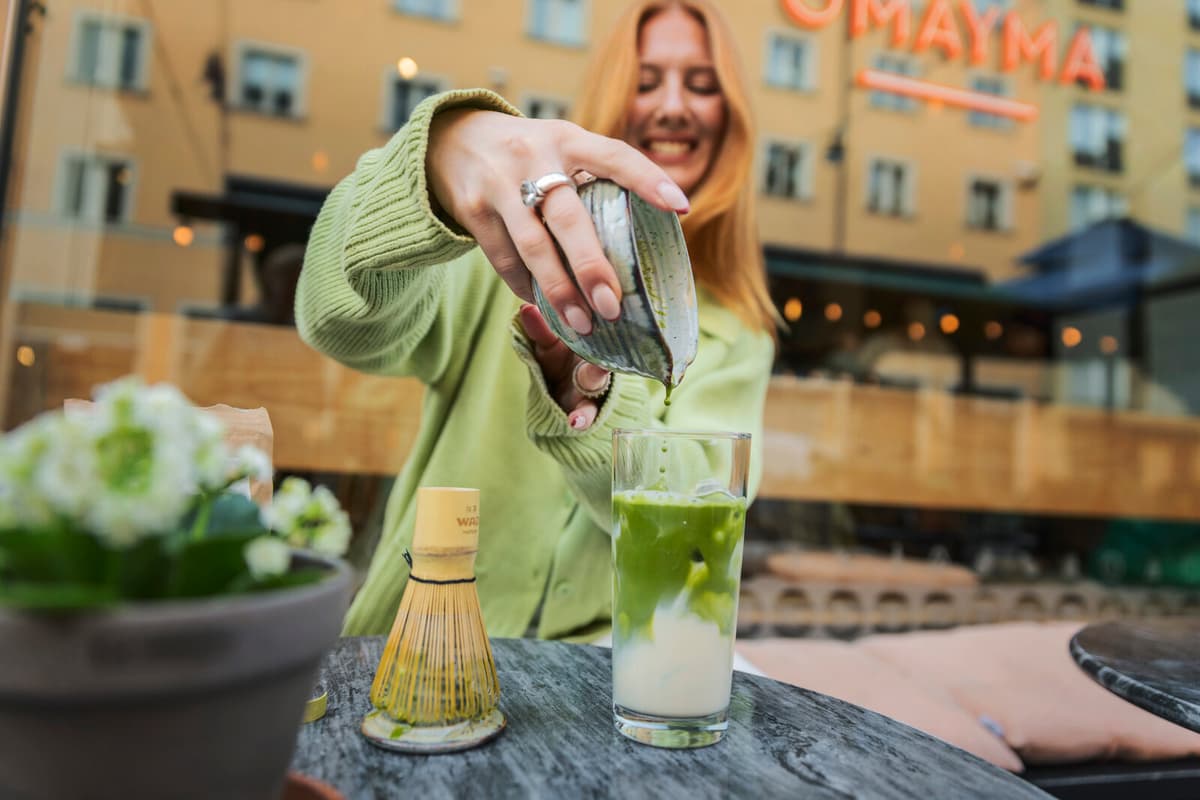Matcha, which is a green tea powder, has been consumed in Japan for centuries, but in recent years, demand has skyrocketed even in the West.
The trend is driven by influencers on Tiktok, where it is launched as a health drink. But also by the fact that tourism to Japan has taken off after the pandemic, among other things, thanks to the weak yen. Last year, Japan's export of green tea increased by 25 percent, to a value of 247.5 million dollars, according to the news agency Bloomberg.
"Like with coffee"
One who has noticed that interest has increased even in Sweden is 22-year-old Astrid Johansson, who runs the company Wao Matcha, which sells matcha online.
Four years ago, half of the people I met did not know what matcha was. Now, I would say that 90 percent know it, she says.
She describes herself as a matcha nerd since her high school days in Gothenburg, when she first started selling matcha in a UF company.
It's with matcha cultivation like with coffee or wine, cultivation tastes completely different depending on how and where you cultivate.
Our first question was whether it was possible to find one that is good and high-quality but still has an okay price. It took quite a long time to research, she says.
She started her current company in 2023, with the same supplier she found in high school. In the beginning, she was also in Draknästet on SVT and received an investment from entrepreneur and podcaster Hannah Widell.
The timing could hardly have been better, because since then, popularity has only increased. But as Astrid Johansson's sales have taken off, the Japanese farmers have also had difficulty meeting the large demand.
Raised the price by 100 percent
Poor harvests in the spring of 2025 did not make things better. During the spring's tencha auction in Kyoto (the tea variety used to make matcha), the price rose by 170 percent to a new record of 8,235 yen per kilo, according to CNBC. This corresponds to approximately a kilo price of 520 kronor.
On September 1 this year, therefore, one of Japan's largest tea producers, Ito En, raised its prices significantly. For some types of the finest matcha by 100 percent.
Astrid Johansson has also noticed that it has become more difficult to get tea to sell.
What we planned for in February for the whole year, we have already reached now in sales, so we have had to have extra planning meetings with all suppliers and asked ourselves if we will even have access to matcha.
We have, as luck would have it, solved it now. We have been lucky enough to be able to get through with contacts, but I have heard that many have had problems with availability, she says.
The matcha powder is made from a green tea called tencha. Cultivations are mainly found in Japan and China.
The production is described as labor-intensive, the shoots must be protected from the sun for the taste to be right. After harvest, which generally takes place once a year in the spring, the leaves must be cleaned from stems and leaf veins, steamed, dried, and ground into a powder.
In recent years, production has had difficulty following demand when drought has affected harvests and popularity has skyrocketed.
The Japanese government is considering giving special grants to farmers to get them to cultivate more tencha. Something that many, however, are hesitant to do because they are worried that the trend will be temporary.
Sources: Bloomberg, CNBC






